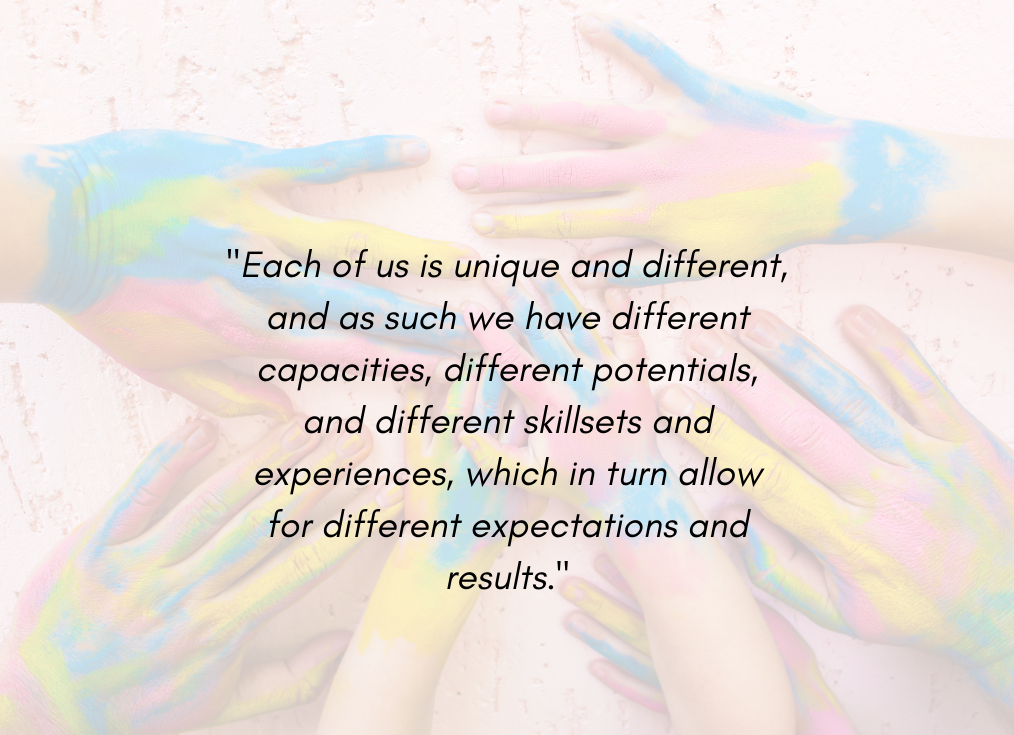Equity, Equality, and Investing in Our Future Leaders

June 11, 2021
There are volumes of rabbinic responses to this week’s Torah portion, Korach. In fact, you could even claim that there is an entire genre of literature that has grown out of the leadership theme and the consequent counter-leadership approach that has ensued.
In this week’s Torah portion, we are reminded of the differences between equity and equality. Too often we hear arguments in support of equality, sameness, uniformity, and homogeneity, when in fact, what is really being sought after is equity, fairness, justice, and impartiality.
My mother used to settle arguments between my siblings and me with a reminder of her simple yet incredibly effective mantra, “I will treat you all the same by treating you all differently.” Although my brother, my sister, and I were all her natural-born children being raised in the same home under the same general rules and expectations, my mother was instilling in us the lessons of our Jewish tradition, founded in this week’s Torah portion. Each of us is unique and different, and as such we have different capacities, different potentials, and different skillsets and experiences, which in turn allow for different expectations and results.
Moses led with a sense of equity. He recognized that people had different levels of potential and that it was the elders’ responsibility to cultivate and nurture our younger leaders’ potential. Korach, this week’s parashah’s namesake, promoted equality and the notion that everyone was equal and deserved equal responsibility no matter their experiences, motives, or abilities. “[T]he entire congregation are all holy,” (Numbers 16:3) claims Korach in his mutiny speech to Moses. Although this might technically be correct, yes, all the people were believers and had an appreciation for Gd’s power and authority, what Korach was suggesting was that everyone should consequently have equal say and decision-making responsibility.
When we look at our local San Antonio Jewish community’s leadership journey, we see the results of 100 years of Moses’ positive influence, where our elders have held the reigns and made the decisions that have successfully guided us to where we are today. However, where our community has unfortunately fallen short is in our engagement of our younger adults and in cultivating them to take on the responsibility to sustain our Jewish community for the next hundred years.
Well, we are incredibly proud to announce that the Jewish Federation’s Young Adult Division (YAD), in collaboration with the other young Jewish adult organizations across San Antonio, is embarking on an initiative to rectify this flaw.
Next week, the YAD leadership group will be sharing across all our social media platforms, emailing, text messaging, and even old-fashioned telephone calling, information on a Jewish young adult engagement initiative to raise $5,000. We invite everyone in the community to support their initiative, with 100% of every gift going to enriching young Jewish adult programming and leadership development in San Antonio. Learn more at jfsatx.org/moishepod
Both Moses and Korach believed that we are all holy, the difference is that Moses recognized we have all been blessed with different capacities and responsibilities and that our time to show our holiness is not always in sync. However, if this initiative, this investment in our future leaders of the San Antonio Jewish community, this cause for ensuring we cultivate the decision-makers who will sustain the next 100 years of Jewish San Antonio, ignites your holiness today, please support them with any sized contribution. This is their initiative to ensure that the Jewish Federation remains,
Shabbat shalom,

